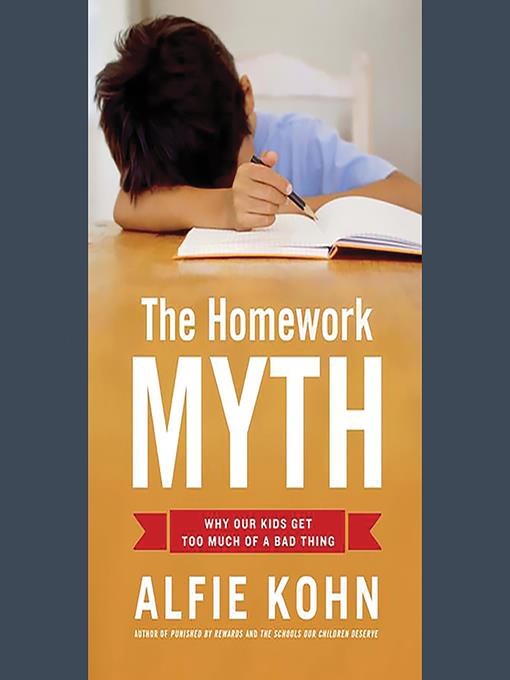
The Homework Myth
Why Our Kids Get Too Much of a Bad Thing
کتاب های مرتبط
- اطلاعات
- نقد و بررسی
- دیدگاه کاربران
نقد و بررسی

July 31, 2006
Education watchdog and author Kohn (No Contest: The Case Against Competition
) questions why teachers and parents continue to insist on overloading kids with homework when there are no definitive studies proving its overall learning benefits. Indeed, argues Kohn persuasively, homework can be detrimental to children 's development by robbing families of quality evening time together and not allowing a kid time simply to be a kid. Americans in general advocate a tough-going approach to education and push teachers to give more drudgery nightly as a way of "building character." Yet Kohn shows that doing forced busywork only turns kids off to school and kills intellectual and creative curiosity. The American insistence on producing good worker bees "by sheer force or cleverness," notes Kohn, "reflects a stunning ignorance about how human beings function in the real world." Kohn pursues six reasons why homework is still so widely accepted despite the evidence against it, including the emphasis on competitiveness and "tougher standards" and a basic distrust of children and how they would fill their time otherwise if not doing busywork. There aren't enough case studies in Kohn's work, but Kohn sounds an important note: parents need to ask more challenging questions of teachers and institutions.

September 1, 2006
Some of the most fundamental expectations of children, parents, and educators are that children need homework, that they should get homework, and that the more they get, the better. According to Kohn ("Punished by Rewards: The Trouble with Gold Stars, Incentive Plans, A's, Praise, and Other Bribes"), we assume that the benefits of homework outweigh its costs in time, family conflict, frustration, and loss of interest in learning. But, he argues, research doesn't support the value of homework in teaching children either academic subjects or habits like self-discipline. Kohn explores society's assumptions about homework, notes that none of them are supported empirically, and provides guidelines for alternatives to traditional homework assignments. The book is a little dense at times but is well argued and will stimulate lots of discussion. Recommended for academic libraries supporting programs in education as well as for public libraries serving patrons interested in educational policy." -Mark Bay, Univ. of the Cumberlands Lib., Williamsburg, KY"
Copyright 2006 Library Journal, LLC Used with permission.

September 1, 2006
Kohn has mapped for himself an uphill struggle against widely held beliefs that American children need homework to stay on track for academic success and to compete with better-prepared children in other nations. Kohn outlines the costs of homework: overburdened parents, stressed children, family conflicts, little free time, declining interest in learning. He highlights the debate between parents and teachers as they argue about the relative benefits or detriments of homework, and explores research--from as far back as the 1800s--indicating that homework does not improve learning. Exploring the variety of assignments, from fill-in-the-blank sheets to more creative efforts, Kohn maintains that homework does not improve learning for children, whether in grade school or high school, and laments the trend of giving homework to younger and younger students. He also takes to task the alleged nonacademic benefits of homework, including teaching children time-management and study skills. Whatever their opinions about homework, parents and teachers will find this book an interesting part of the debate.(Reprinted with permission of Booklist, copyright 2006, American Library Association.)

























دیدگاه کاربران